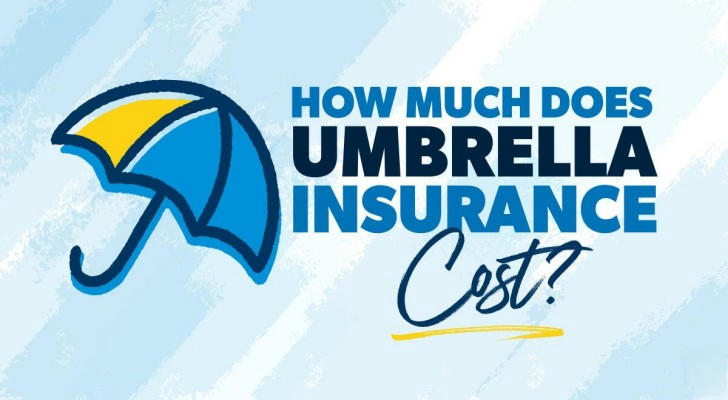Umbrella Policies Explained: Extra Protection for Life's Rainy Days ☔
Imagine this: You’re involved in a serious car accident. The other driver is injured and files a lawsuit demanding $1 million. However, your auto insurance covers only $300,000. Who pays the remaining $700,000?
Without an umbrella policy, those costs could come from your personal assets—such as savings, property, or even future income.
That’s why an umbrella insurance policy is often called protection for life’s rainy days. It acts as an extra layer of security when unexpected financial storms strike.
This article breaks down what umbrella insurance is, how it works, who should consider it, and how much it typically costs—all in clear, easy-to-understand language.
☂️ What Is an Umbrella Policy?

An umbrella insurance policy provides additional liability coverage that goes beyond the limits of auto, home, renters, or boat insurance.
In simple terms:
If a lawsuit or large claim exceeds your existing policy’s coverage, umbrella insurance covers the difference—often up to $1 million to $5 million or more.
Here’s a simple way to picture it:
• Auto insurance covers: injuries and damages from car accidents.
• Homeowners insurance covers: injuries on your property or property damage.
• Umbrella insurance covers: costs that exceed those policies' limits and broader liability risks.
Umbrella policies also cover certain legal situations that other insurance does not, such as slander, libel, or false arrest.
💡 Real-Life Example
Back to the car accident scenario:
• You cause an accident.
• The injured party sues for $1 million.
• Your auto insurance covers $300,000.
• An umbrella policy covers the remaining $700,000.
• Your savings, home, and future income remain protected.
Without an umbrella policy, you would be personally responsible for that $700,000.
📊 Why More Americans Are Choosing Umbrella Policies
Each year, civil lawsuits in the United States result in over $429 billion in damages, according to data from the U.S. Chamber of Commerce Institute for Legal Reform (2023).
Additionally, jury awards of $1 million or more—known as nuclear verdicts—are increasingly common.
The National Law Journal reports:
• Nuclear verdicts rose by 27% from 2020 to 2023.
• Median award amounts continue to grow in personal injury cases.
The takeaway:
Even careful, responsible individuals can face lawsuits far exceeding basic insurance limits.
Financial advisors now frequently recommend umbrella insurance not only to high-net-worth individuals but also to middle-class families who wish to safeguard their assets.
🚗🏠 What Does Umbrella Insurance Typically Cover?

An umbrella policy often covers:
✅ Bodily injury liability (e.g., medical bills if someone is injured due to your actions)
✅ Property damage liability (e.g., damage caused to someone else’s property)
✅ Legal fees and defense costs
✅ Lawsuits involving slander, libel, or defamation
✅ False arrest, detention, or imprisonment
✅ Certain liability claims occurring worldwide
Coverage typically extends to household members as well.
What is usually excluded:
❌ Personal injuries or property damage to yourself
❌ Business-related liabilities (unless specifically covered under a commercial policy)
❌ Illegal or intentional acts
👩💻 A Quick Case Study
Scenario: Homeowner Liability
In 2021, a Florida homeowner hosted a birthday party. A guest tripped on an uneven patio surface and suffered a severe back injury.
• The total damages—including medical bills and legal fees—reached $750,000.
• The homeowner’s insurance covered $300,000.
• Without an umbrella policy, the remaining $450,000 would have been an out-of-pocket expense.
• Fortunately, the homeowner had a $1 million umbrella policy, covering the entire shortfall.
Outcome: Financial disaster avoided, personal assets protected.
💰 How Much Does an Umbrella Policy Cost?

Surprisingly, this type of coverage is affordable compared to the protection it offers.
Typical annual premiums:
• $150–$300 per year for $1 million in coverage
• Additional coverage (each extra $1 million) usually adds $75–$150 per year
Factors that affect cost include:
• Location
• Number of vehicles, properties, or boats owned
• Driving history and claims record
• Desired coverage limits
Example:
For a household with two vehicles and a single-family home, a $1 million umbrella policy may cost approximately $200–$250 per year—which breaks down to less than $20 per month.
🤔 Who Should Consider an Umbrella Policy?
As a simple guideline:
👉 If the combined value of your assets and earning potential exceeds your current liability coverage, an umbrella policy is worth strong consideration.
Contrary to popular belief, umbrella insurance is not solely for millionaires. It may be appropriate if you:
✅ Own a home
✅ Drive regularly (especially in areas with high traffic or litigation rates)
✅ Have significant savings or investments
✅ Frequently host guests or social gatherings
✅ Have teenage drivers in the household
✅ Own rental property
✅ Engage in international travel
✅ Are active on social media (exposure to potential libel claims)
When a lawsuit exceeds standard insurance coverage, personal assets become vulnerable. An umbrella policy provides critical protection in such situations.
📋 Final Takeaway
Life’s financial storms can strike when least expected. An umbrella insurance policy:
• Provides vital additional liability protection
• Covers legal risks not included in other policies
• Helps shield personal assets and future income
• Is available at a surprisingly reasonable cost
With civil lawsuit verdicts growing larger, umbrella coverage has become a smart move for individuals seeking financial security.
For the cost of one or two monthly restaurant meals, it’s possible to add millions of dollars of protection against life’s unexpected legal challenges. ☔
🌟 Quick Recap
| Feature | Umbrella Insurance |
|---|---|
| Primary purpose | Additional liability protection |
| Typical coverage | $1M–$5M+ |
| Annual premium | $150–$500+ |
| Extends beyond | Auto, home, renters, boat insurance |
| Covers legal defense? | Yes |
| Recommended for | Most homeowners, vehicle owners, and individuals with assets |
Ready to Take the Next Step?
Speak with an insurance professional or explore reputable online comparison tools. Coverage can typically be added to existing policies with a simple application process.
When the unexpected happens, having the right protection in place can make all the difference.
